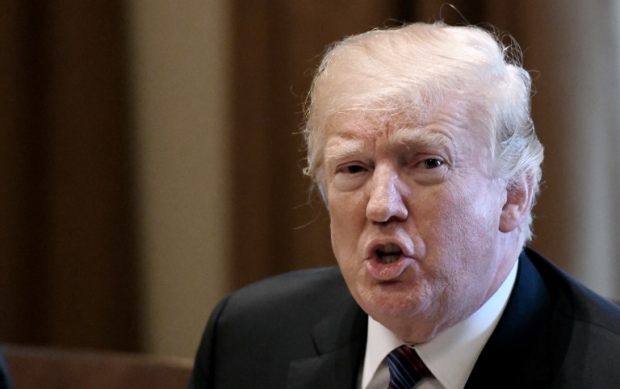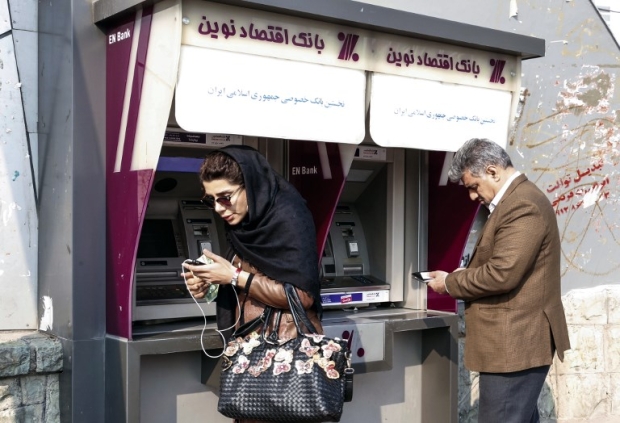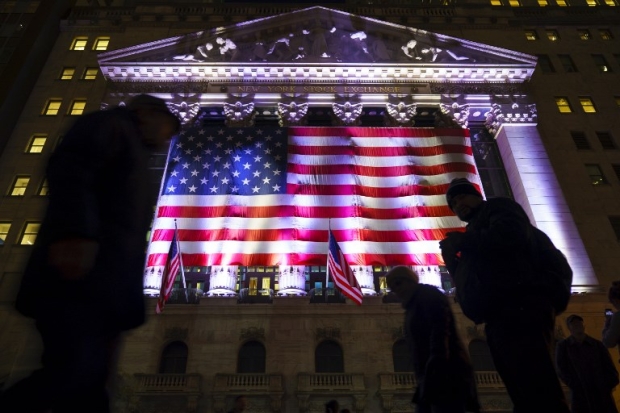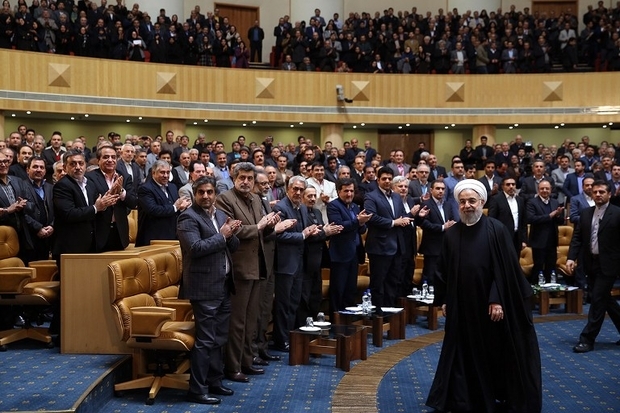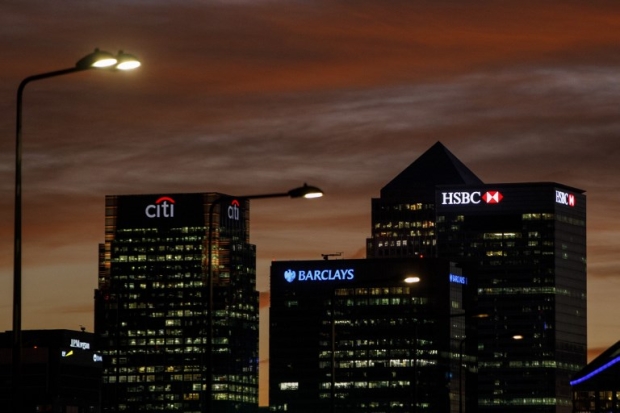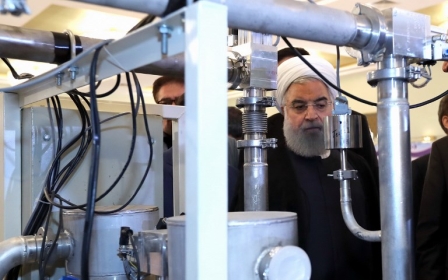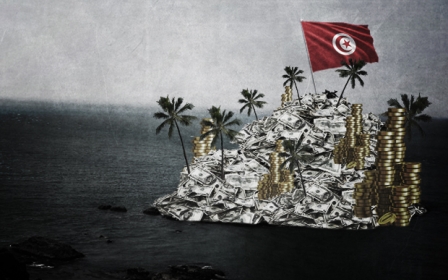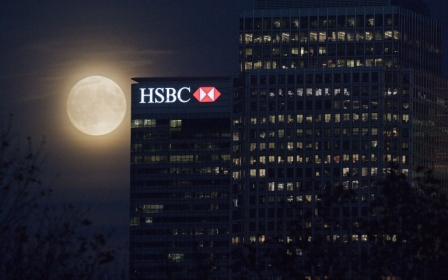Nuclear deal: Iran faces the most powerful organisation you’ve never heard of
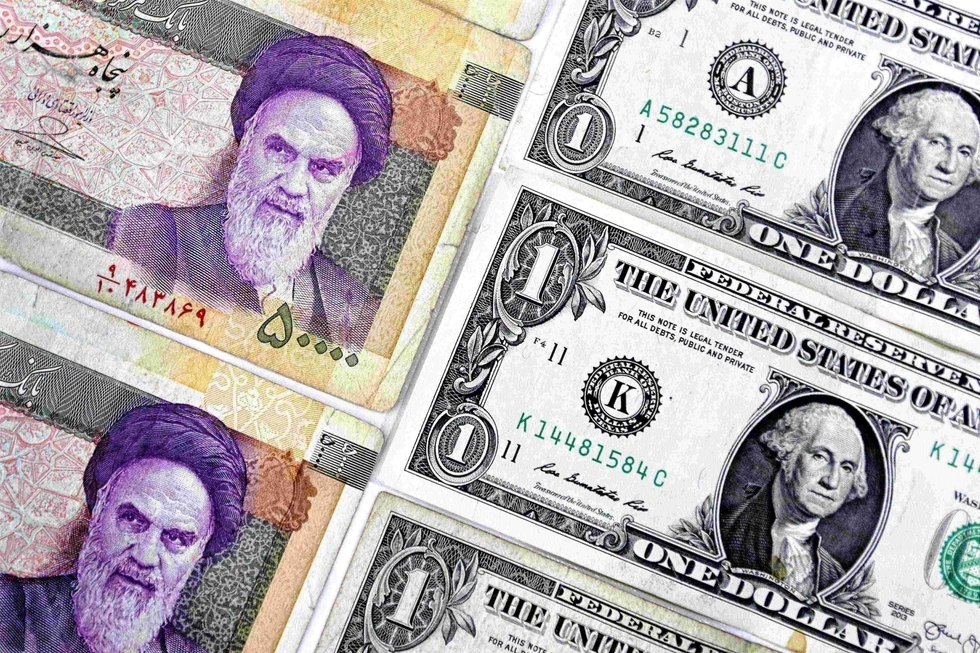
Before Western powers imposed sanctions on Iran in 2011, the US Treasury Department went on a roadshow in Europe and Dubai to persuade banks to stop transactions with the country.
But since the nuclear agreement in 2015 that eased the sanctions, the US Treasury hasn’t had to arm-twist. Instead, private European and Gulf banks have voluntarily refused Iran-related transactions, leaving a mere handful of European banks willing to deal with the country.
The FATF is the most powerful organisation most people have never heard of. It doesn’t figure much in the media but it’s hugely influential
- Tom Keatinge, director, RUSI's Centre for Financial Crime and Security Studies
A major factor in banks’ refusal to deal with Iran is the uncertainty around the Joint Comprehensive Plan of Action (JCPOA) – the “nuclear agreement”. US President Donald Trump has until 12 May to decide whether to withdraw from “one of the worst deals he has ever seen” and impose further sanctions.
“US sanctions have been extraordinarily extra-territorial in scope, and could be renewed,” said Mary-Ann Orr, a senior associate at Blackstone Solicitors in the UK.
“That is a reason why British and European financial institutions, which wouldn’t be doing anything wrong by allowing clients to receive or send money to Iran, are very nervous, because of huge fines in the past (by the US).”
But it is not just the uncertainty around the agreement that Iran must contend with in order to reintegrate into the global financial system, one of the carrots offered for halting its alleged nuclear programme.
But if Trump does in fact rip up the agreement, Iran’s compliance with the FATF could offer a glimmer of hope for much-needed investment: it might give European banks confidence to operate in Iran, regardless of the American stance.
Still, it all depends on whether Iranian politicians, who are currently debating the issue, will agree to the organisation’s requirements, including measures which would criminalise the financing of Hamas and Hezbollah.
Risking financial exclusion
The FATF was founded in 1989 by G7 countries to develop policies, and push countries to adopt anti-money-laundering (AML) and terrorism financing (CFT) standards.
"It’s the most powerful organisation most people will have never heard of it, and one that’s only grown more influential in recent years," said Tom Keatinge, the director of the Centre for Financial Crime and Security Studies at the RUSI think tank in London.
“A lot of aggravation that people suffer with their banking is FATF-related but they don’t realise it."
While the efficacy of sanctions as a means to bring about policy change is frequently debated, countries with less global power have little choice but to adopt the FATF’s requirements or risk financial exclusion.
“Over the past 20 years, the globalisation of the world has been supported by the globalisation of financial regulations. Countries can be very effectively financially isolated (if they do not comply), which drives up costs (of doing business), and makes life more challenging,” said Keatinge.
While there has been less push-back on adopting anti-money-laundering rules, because of the perceived benefits of curbing organised crime and other financial crimes such as tax evasion, countering the financing of terrorism (CFT) has been more controversial.
That's because there isn't a globally accepted definition of terrorism, reflected in the maxim "one man’s freedom fighter is another man’s terrorist".
Dionysios Demetis, a lecturer in management systems at the Hull University Business School, said: “The expansion of the FATF’s mandate for terrorist financing happened straight after the 9/11 attacks in the US, despite objections at the time. Strong US power influences are exerted in many ‘inter-governmental’ institutions, and the FATF would be no exception."
Keatinge said that when it comes to Iran - which is not a member of FATF and has no allies among its membership of 35 countries and two regional organisations, the EU and the Gulf Cooperation Council – the organisation has become increasingly politicised.
Indicative of such politicisation is that the US and EU co-sponsored a motion for Pakistan to be placed on FATF’s grey list in February, but strong lobbying from Turkey prevented what a Pakistani official said would have been “a political move and vengeful”.
Comply or kowtow?
After the JCPOA was agreed, in June 2016 the FATF eased countermeasures and required Tehran to develop an action plan to address its AML and CFT deficiencies by June 2018.
One requirement the body says that Iran “should fully address” is “adequately criminalising terrorist financing, including by removing the [Iranian] exemption for designated groups ‘attempting to end foreign occupation, colonialism and racism’”.
Reformists in Iran want to demonstrate the fruits of positive engagement with Europe
- Omid Mojabi, senior associate, Aperio Intelligence
While the FATF does not name such exempted groups, they are widely believed to include Palestine’s Hamas and Lebanon’s Hezbollah, neither of which are designated by the UN as terrorist organisations.
For Iran to meet this requirement, it will have to amend article 154 of its constitution, which supports “the struggles of the oppressed for their rights against oppressors anywhere in the world”.
The FATF has made clear that it expects Tehran to comply. Iran currently has draft legislation in parliament to amend its rules to this effect, with the parliament economic committee and the legal and judicial committee to release reports on “the consequences of joining the FATF”.
The issue has caused significant debate in Tehran. “There is a feeling in some quarters (in Iran) that in kowtowing to the FATF, it is also kowtowing to the Americans, and those that oppose Iran,” said Keatinge.
The situation has pitted reformists, who have generally been supportive of the JCPOA, against hardliners.
FATF’s formal acknowledgement of Iran’s efforts would be a good start, he added.
“The broader attitude is that Western banks don’t want to work with Iran. In the UK, there hasn’t been significant trade at all, as banks are not willing to have relations with Iran, while in Germany, Austria, France and Switzerland, it is only second- and third-tier banks (smaller banks) willing to do so, so not very significant,” said Mojabi.
“It almost seems like there’s miscommunication, as at the executive level they have the political will, but that has not led to a change in attitude at the major banks as a result of the mixed messages from Europe.”
Mixed investment messages
European governments, including the UK, have encouraged the re-establishment of trade with Iran since the JCPOA was inked in 2015. But the reality is a different story, said Anna Bradshaw, a partner at Peters & Peters solicitors in London.
“Trade with Iran is ostensibly encouraged, in recognition of the key importance of trade for the success of the JCPOA, yet no steps have been taken to address the obvious obstacles to such trade: the reluctance of financial institutions worldwide to engage in any Iran-related transactions for fear of long-arm US enforcement action as well as money-laundering risk."
Trade with Iran is ostensibly encouraged... yet no steps have been taken to address the obvious obstacles to such trade
- Anna Bradshaw, Peters & Peters solicitors
“The current uncertainty in itself is a further disincentive to trade. There is very little to reassure businesses in the build-up to 12 May what the UK government's policy position would be if US secondary sanctions were to be resurrected, beyond its continuing support of the JCPOA.”
Trump’s unpredictability has resulted in a flurry of diplomatic activity, especially by member states of the EU, to try to preserve the nuclear agreement.
Ultimately, European banks could still be in a difficult position, regardless of whether the JCPOA is kept or undermined by Washington, and even if the FATF takes Iran off its blacklist.
Western financial institutions have a low-risk appetite globally for engaging with less regulated jurisdictions due to AML and CFT regulations, while Iranian banks did not keep pace with the changes in the regulatory environment during the sanctions period, which overlaps with the rise of the FATF’s influence and heightened fines for non-compliance.
“It falls on the EU to rescue any deal with Iran while still adhering to a growing list of anti-money-laundering actions,” said Theodore Karasik, a senior advisor to Gulf State Analytics, a Washington DC-based consultancy.
FATF did not respond to MEE’s requests for comments.
New MEE newsletter: Jerusalem Dispatch
Sign up to get the latest insights and analysis on Israel-Palestine, alongside Turkey Unpacked and other MEE newsletters
Middle East Eye delivers independent and unrivalled coverage and analysis of the Middle East, North Africa and beyond. To learn more about republishing this content and the associated fees, please fill out this form. More about MEE can be found here.


